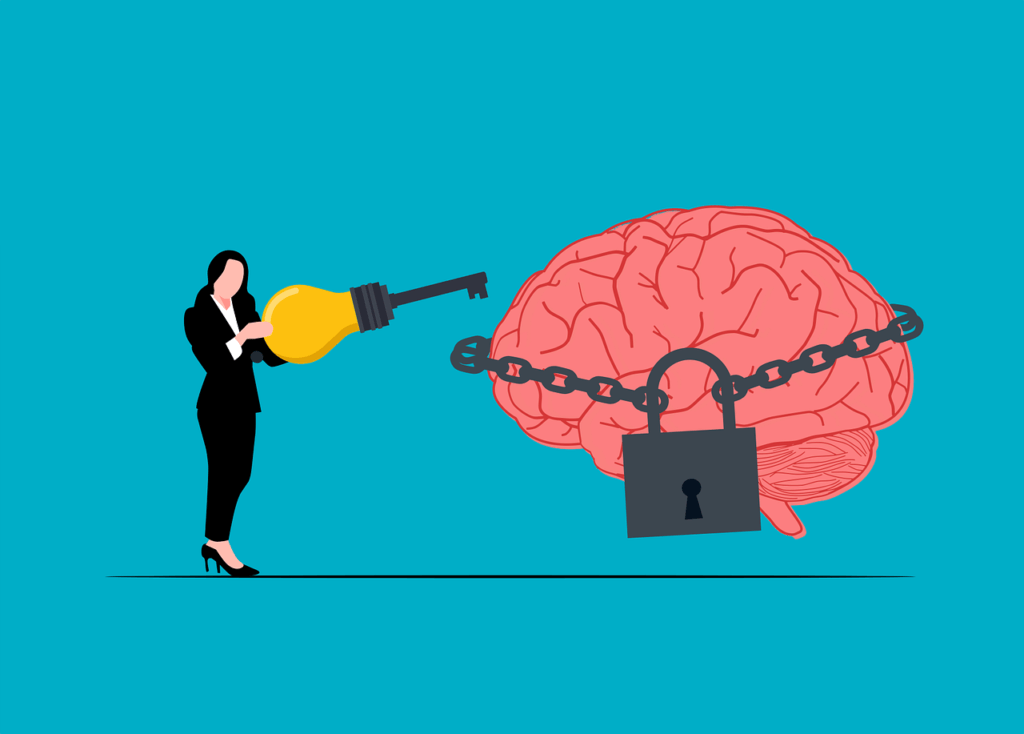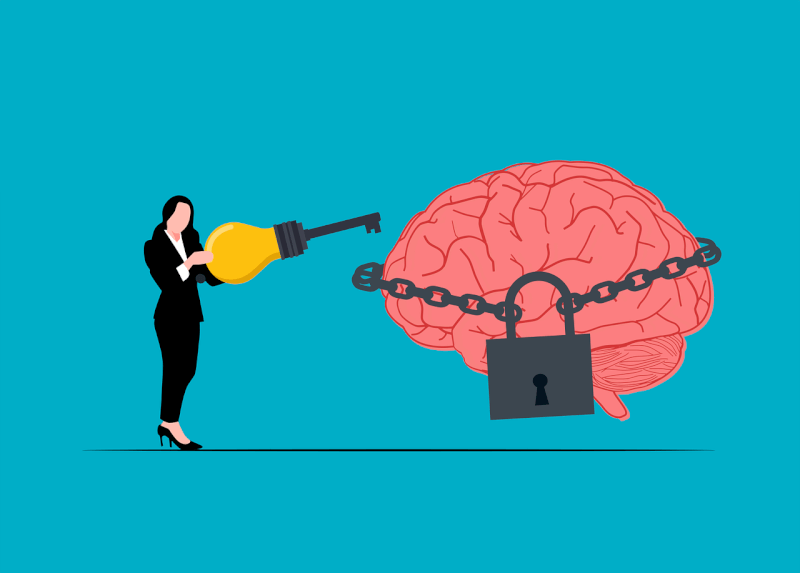Imagine you’re sitting in your cozy living room, contemplating the idea of prepping. Your mind begins to wander, wondering about the mental and emotional aspects of this intriguing practice. What drives people to stockpile supplies and prepare for unforeseen events? How does it impact their psyche and emotions? In this article, we will delve into the thought-provoking realm of prepping and explore its fascinating connection to our mental and emotional well-being. Get ready for a journey of self-reflection and discovery!

The Importance of Mental and Emotional Preparedness
In today’s unpredictable world, where natural disasters, pandemics, and other unexpected events have become increasingly common, the importance of being mentally and emotionally prepared cannot be stressed enough. Prepping goes beyond physical preparations; it encompasses mental and emotional readiness as well. Understanding the nexus between mental health and prepping is crucial in ensuring that you are adequately prepared to handle whatever challenges may come your way.
Understanding the Nexus between Mental Health and Prepping
Prepping involves more than just stockpiling supplies and honing survival skills. It requires a strong mental and emotional foundation to effectively navigate through difficult situations. Mental health plays a vital role in prepping because it affects how you think, react, and make decisions in high-stress scenarios. Emotional well-being, on the other hand, governs how you cope with the challenges and uncertainties that prepping might throw your way. By recognizing and addressing the mental and emotional aspects of prepping, you can build resilience and cope better with the demands of emergency situations.
Building Resilience and Coping Skills
Building resilience is crucial in prepping, as it allows you to bounce back from adversity and continue moving forward. Developing coping skills enables you to effectively manage stress, anxiety, and fear that may accompany prepping. It’s essential to cultivate a mindset that embraces challenges as opportunities for growth and learning. By building resilience and coping skills, you can approach prepping with a sense of confidence and adaptability, making it easier to overcome obstacles and setbacks along the way.
Recognizing and Managing Anxiety and Fear
Anxiety and fear are common emotional responses during the prepping process. The uncertainty and potential dangers that come with preparing for emergencies can trigger these feelings. It’s crucial to recognize and address these emotions to maintain optimal mental health. Practice relaxation techniques, such as deep breathing and mindfulness, to help calm your mind and alleviate anxiety. Additionally, seeking professional help and talking to loved ones can provide valuable support in managing anxiety and fear.
Maintaining Mental Health during Prepping
Adopting a Positive Mindset
Maintaining a positive mindset is essential during the prepping journey. Focusing on the opportunities for personal growth and the satisfaction that comes with being prepared can help you stay motivated and optimistic. Practice gratitude for the resources and support available to you, and consistently remind yourself of the progress you have made. By adopting a positive mindset, you can create a mental environment that nurtures and sustains your mental health throughout the prepping process.
Developing Problem-Solving Skills
Prepping requires the ability to think critically and solve problems effectively. By honing your problem-solving skills, you can navigate through the complexities and uncertainties that arise during the preparation phase. Practice analyzing different scenarios, evaluating potential risks and benefits, and developing contingency plans. This will not only enhance your preparedness efforts but also contribute to your mental agility and resilience.
Establishing Realistic Expectations
It’s essential to set realistic expectations when it comes to prepping. Recognize that preparations take time, resources, and effort. Understand that you cannot anticipate and prepare for every possible scenario. By setting achievable goals and expectations, you can prevent burnout and feelings of overwhelm. Remember, prepping is a journey, and every step forward is significant.
Seeking Social Support and Connection
Prepping can be an isolating experience, especially if those around you do not share the same mindset. Seek out like-minded individuals who understand the importance of being prepared and can provide support and encouragement. Join online communities, attend local prepping events, and engage in discussions with family and friends. Surround yourself with a supportive network that can offer guidance, advice, and a sense of community, promoting overall mental well-being.
Dealing with Emotional Challenges in Prepping
Managing Stress and Overwhelm
Prepping can undoubtedly be stressful and overwhelming at times. The sheer amount of information, decisions, and tasks can feel burdensome. It’s important to identify and implement effective stress management techniques. Incorporate relaxation exercises such as meditation, yoga, or engaging in hobbies that bring you joy and help you unwind. Prioritize self-care, establish boundaries, and break tasks into smaller, manageable steps. By managing stress and overwhelm, you can maintain a balanced mental and emotional state while prepping.

Cultivating Emotional Intelligence
Emotional intelligence refers to the ability to recognize, understand, and manage our own emotions, as well as those of others. Cultivating emotional intelligence is crucial in prepping, as it enables you to navigate interpersonal dynamics effectively and address conflicts or disagreements that may arise within your prepping team or community. Practice active listening, empathy, and effective communication skills. By developing emotional intelligence, you can foster healthier relationships and build a more cohesive and supportive prepping community.
Addressing Grief and Loss
Prepping involves preparing for worst-case scenarios, which may include the loss of loved ones, the destruction of belongings, or even the loss of a sense of security. It’s important to acknowledge and address the emotions that accompany grief and loss. Allow yourself to mourn, seek support from loved ones, or consider professional counseling if needed. By facing and processing these emotions, you can better navigate the emotional challenges that prepping may present.
Psychological Factors in Preparedness Planning
Understanding Cognitive Biases and Decision-Making
Cognitive biases are inherent tendencies in human thinking that can impact the quality of our decision-making. It’s important to be aware of common cognitive biases such as confirmation bias, overconfidence bias, and anchoring bias, as they can lead to poor decisions and hinder effective preparedness planning. Take steps to mitigate these biases by seeking diverse perspectives, conducting thorough research, and critically evaluating information. By recognizing and addressing cognitive biases, you can make more informed decisions during the prepping process.
Psychological Implications of Uncertainty
Uncertainty is a fundamental aspect of prepping. The inability to predict exactly what emergency situations may arise can create anxiety and stress. It’s crucial to recognize and manage the psychological implications of uncertainty. Incorporate flexibility into your preparedness plans, consider multiple scenarios, and prioritize adaptability. By embracing uncertainty and preparing for a range of possibilities, you can build psychological resilience and reduce the negative impact of uncertainty on your mental well-being.
Mitigating the Effects of Groupthink
Groupthink occurs when a group prioritizes consensus and conformity over critical thinking and creative problem-solving. In a prepping context, groupthink can hinder preparedness efforts by discouraging the exploration of alternative ideas or strategies. To mitigate the effects of groupthink, encourage open and respectful communication within your prepping community. Embrace diversity of thought and actively seek differing perspectives. By fostering a culture that values independent thinking, you can enhance the effectiveness of your preparedness planning and ensure a well-rounded approach.
Maintaining Motivation and Persistence
Setting Meaningful Goals
Setting goals is crucial to maintaining motivation and persistence in prepping. Identify clear, measurable, and achievable objectives that align with your values and priorities. Break down larger goals into smaller milestones to track progress. Celebrate each milestone achieved, reinforcing your motivation to continue moving forward. By setting meaningful goals, you create a sense of purpose and direction, enhancing your engagement and perseverance in the prepping journey.
Creating Personal Emergency Plans
Developing personal emergency plans provides a roadmap for action in times of crisis. These plans outline specific steps to be taken, resources required, and responsibilities assigned to ensure a coordinated response. By creating and regularly reviewing your personal emergency plans, you can anticipate potential obstacles, adapt your strategies, and maintain a sense of preparedness. This proactive approach not only enhances your readiness but also fosters a feeling of empowerment and control.
Practicing Self-Reflection and Adaptation
Prepping is an ongoing process that requires continuous self-reflection and adaptation. Regularly evaluate your progress, reassess your strategies, and adjust your plans accordingly. Reflect on your strengths and areas for improvement, seeking opportunities to enhance your knowledge and skills. By practicing self-reflection and adaptation, you can refine your preparedness efforts, boost your confidence, and nurture a sense of personal growth.
Dealing with Disruptions and Adversity
Preventing and Managing Burnout
Prepping can be physically, mentally, and emotionally demanding. It’s crucial to prevent and manage burnout to ensure your continued well-being. Incorporate self-care activities into your routine, such as exercise, adequate sleep, and leisure time. Set boundaries to protect your mental and emotional energy. Delegate tasks and seek support from others when needed. Remember that taking care of yourself is essential to being able to care for others effectively during times of adversity.

Building Flexibility and Adaptability
Flexibility and adaptability are essential traits in prepping. Consider alternative strategies, resources, and approaches to various scenarios. Embrace change and be willing to adjust your plans as circumstances evolve. By building flexibility and adaptability into your preparedness mindset, you can effectively navigate disruptions and setbacks, reducing stress and enhancing your overall preparedness efforts.
Nurturing a Sense of Purpose and Optimism
Maintaining a sense of purpose and optimism can be challenging during the prepping journey, particularly in the face of potential disasters or emergencies. Nurture your sense of purpose by reminding yourself of the positive impact your preparations can have on your life and the lives of others. Embrace an optimistic outlook, focusing on the opportunities for growth, learning, and resilience that prepping provides. By cultivating a sense of purpose and optimism, you can approach prepping with a mindset that promotes motivation and perseverance.
Addressing Prepper-related Stigma
Navigating Social Perceptions and Stereotypes
Prepping can sometimes carry a social stigma, with certain perceptions and stereotypes associated with individuals who engage in preparedness efforts. It’s essential to navigate these social perceptions with confidence and self-assurance. Educate others about the reasons behind your prepping choices, emphasizing the importance of personal responsibility and self-reliance. By engaging in open and respectful conversations, you can challenge misconceptions and promote a more informed understanding of prepping.
Educating Others about Preparedness
One way to address prepper-related stigma is by educating others about the benefits and rationale behind preparedness efforts. Share resources and information with family, friends, and your community, highlighting the importance of being proactive and self-sufficient during emergencies. Encourage others to explore preparedness in a balanced and personalized manner, focusing on practical skills and resources rather than extreme scenarios. By promoting a more comprehensive understanding of preparedness, you can help alleviate stigma and foster a culture of resilience.
Promoting a Balanced Approach
It is crucial to emphasize the significance of a balanced approach to prepping. Highlight that preparedness is about being proactive and responsible, not succumbing to fear or paranoia. Encourage others to assess their individual needs and vulnerabilities, tailoring their preparations accordingly. Emphasize the importance of mental and emotional preparedness alongside physical preparations. By promoting a balanced approach, you can help foster a more inclusive and constructive dialogue about prepping.
Coping with Disbelief and Skepticism
Managing Judgment and Criticism
Prepping may be met with skepticism or even judgment from others who don’t share the same mindset. It’s essential to manage these external influences and remain confident in your choices. Remember that not everyone will understand or agree with your decision to prepare for emergencies. Seek support from like-minded individuals who can provide validation and understanding. Practice self-assurance and rely on your knowledge, research, and judgment when facing disbelief or criticism.
Building Confidence in Prepping Choices
To cope with disbelief and skepticism, it’s important to build confidence in your prepping choices. Continually educate yourself about emergencies, disasters, and preparedness strategies. Engage in training and practice scenarios to enhance your skills and knowledge. Participate in online or local communities dedicated to preparedness, where you can find support and learn from experienced preppers. By building confidence in your prepping choices, you can remain steadfast in your commitment to being prepared.
The Role of Education and Training
Increasing Knowledge and Skills
Education and training play a critical role in enhancing your preparedness efforts. Continuously seek opportunities to increase your knowledge and skills related to prepping. Attend workshops, seminars, and webinars focused on emergency preparedness, first aid, self-defense, and other relevant topics. Stay updated on the latest research, guidelines, and best practices in the field. By investing in your education, you can make informed decisions and effectively apply your knowledge in emergency situations.
Engaging in Scenario-based Exercises
Scenario-based exercises are valuable tools for preparing your mind and body for potential emergencies. Participate in drills and simulations that mimic real-life scenarios to practice your response and decision-making skills. Engage in role-playing exercises with your prepping community to enhance teamwork and coordination. By actively engaging in scenario-based exercises, you can increase your readiness and build confidence in your ability to handle challenging situations.
Seeking Mental Health Professionals with Disaster Preparedness Expertise
Incorporating mental health professionals with expertise in disaster preparedness can be incredibly beneficial. These professionals can provide specialized guidance, support, and tools to help you navigate the mental and emotional challenges that may arise during prepping. They can assist you in developing personalized coping strategies and offer valuable insights into maintaining optimal mental health while preparing for emergencies. By seeking their expertise, you can ensure a holistic and well-rounded approach to prepping.
The Impact of Prepping on Personal Relationships
Communicating with Family and Loved Ones
Prepping can have a significant impact on personal relationships, particularly with family and loved ones. Effective communication is key in these situations. Talk openly and honestly about your reasons for prepping, emphasizing your desire to keep your loved ones safe and secure. Involve them in the planning process, encouraging their input and addressing any concerns they may have. By maintaining clear and open lines of communication, you can alleviate misunderstandings and strengthen your relationships.
Addressing Disagreements and Conflicts
Disagreements and conflicts may arise within your prepping community or with loved ones who have differing opinions about preparedness. It’s essential to address these conflicts constructively. Practice active listening and empathy, seeking to understand the perspectives of others. Engage in open and respectful discussions, focusing on finding common ground and shared goals. Consider compromise and find solutions that accommodate different viewpoints. By addressing disagreements and conflicts with patience and understanding, you can foster stronger relationships and build a more cohesive prepping community.
Fostering Cooperation and Teamwork in Preparedness
Prepping is not just an individual effort; it often involves collaboration with others. Foster cooperation and teamwork by establishing clear roles and responsibilities within your prepping community. Encourage open and effective communication, emphasizing the importance of shared goals and mutual support. Practice problem-solving and decision-making together, allowing everyone to contribute and feel valued. By fostering cooperation and teamwork, you can cultivate a sense of unity, making preparedness efforts more efficient and enjoyable for all involved.
In conclusion, mental and emotional preparedness is integral to prepping. By understanding the nexus between mental health and prepping, building resilience and coping skills, and addressing the various psychological factors involved, you can enhance your readiness for emergencies. Furthermore, maintaining motivation and persistence, dealing with disruptions and adversity, and addressing societal stigmas and skepticism will contribute to a more comprehensive and effective approach to prepping. Remember, being mentally and emotionally prepared is just as crucial as physical preparedness when it comes to navigating through uncertain times and ensuring the safety and well-being of yourself, your loved ones, and your community.


